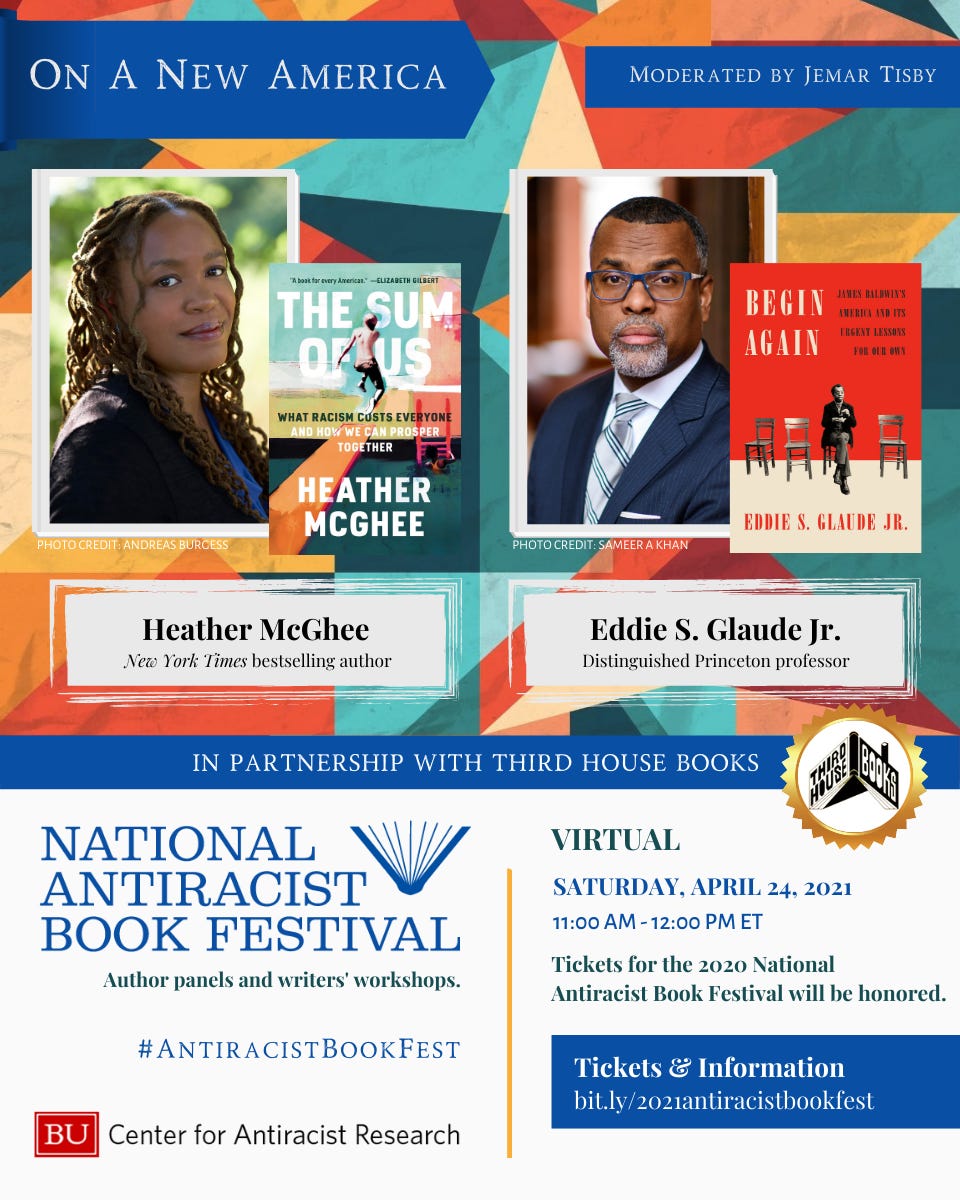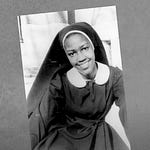Earlier this week I got a message on Microsoft Teams (I’m an Apple guy, so all this PC software is giving me fits). It said that a moderator for our upcoming national Antiracist Book Festival had to cancel and now we needed a new moderator with just two days to go before the event.
I hesitated. I was already slated to moderate another panel and that, too, was unexpected. I also have other work to do in my job at the Center for Antiracist Research, the organization hosting the book festival. And I had a dissertation to write (still do!), plus preparation would require reading two books in two days.
But everyone is busy. So when we couldn’t find an alternate, I volunteered.
I am glad I did.
I moderated the panel with Heather McGhee, author of the best-selling book The Sum of Us: What Racism Costs Everyone and How We Can Prosper Together. The other guest was Dr. Eddie S. Glaude Jr. who wrote Begin Again: James Baldwin’s America and its Urgent Lessons for Our Own.
You should buy both of these books.
Actually. You should buy both of these books and you should read them together.
They are both explorations of hope. In acknowledging the truth—that this nation is in love with the lie of white supremacy and it has caused horrendous harm not just to Black folks and people of color but to white people as well—we have the opportunity to craft a better, truer nation.
So much of the disaster of this nation and its potential are wrapped up in story. Glaude demonstrates that James Baldwin tried—through story—to tell white people, Black people, and this country about ourselves. That the problem is not Black people. The problem is white supremacy and the people who believe it.
White people must examine why they need the lie of white supremacy to define themselves. Black people must learn how to define themselves in the midst of a white supremacy that seeks to diminish and destroy their humanity.
Heather McGhee reminds us that too many white people have believed the lie that if Black people gain, white people must lose. That is why, as she explains, white people would rather drain the community swimming pool and fill it up with cement (true story) than share it with Black people.
McGhee starkly answers the question that opens her book, “Why can’t we have nice things?” Because of racism.
Yet the reader is not left merely holding the heavy weight of truth. Hope helps lift the burden.
Glaude’s story tells the reader that in order to confront the world, you must confront yourself first. His book is a gift of himself that we do not deserve. He chose to write about his pain, even his own father wounds, in public that we might benefit from his journey as he journeyed with Baldwin.
McGhee dares to hope that there is the possibility of cooperation and relationship with white people. She empowers us to tell a new story—that the game is not zero-sum; when one wins we all win.
She looks for signs of hope not in legislation or policy, per se, but on the human level, on the relational plane.
Hope is found in loving your neighbor as yourself.
Read in tandem these books communicate that we can, indeed, begin again but it will take the sum of us.
————————-
I recorded more of my reflections in this podcast episode. I apologize for the constant pop and crackle. If you can stand the annoyance, I think you’ll find my reflections at least interesting, and perhaps even helpful.
Unfortunately, the recording for this session will only be available to all-access ticket holders. But make plans to join us for the third annual Antiracist Book Festival in 2022.















Share this post